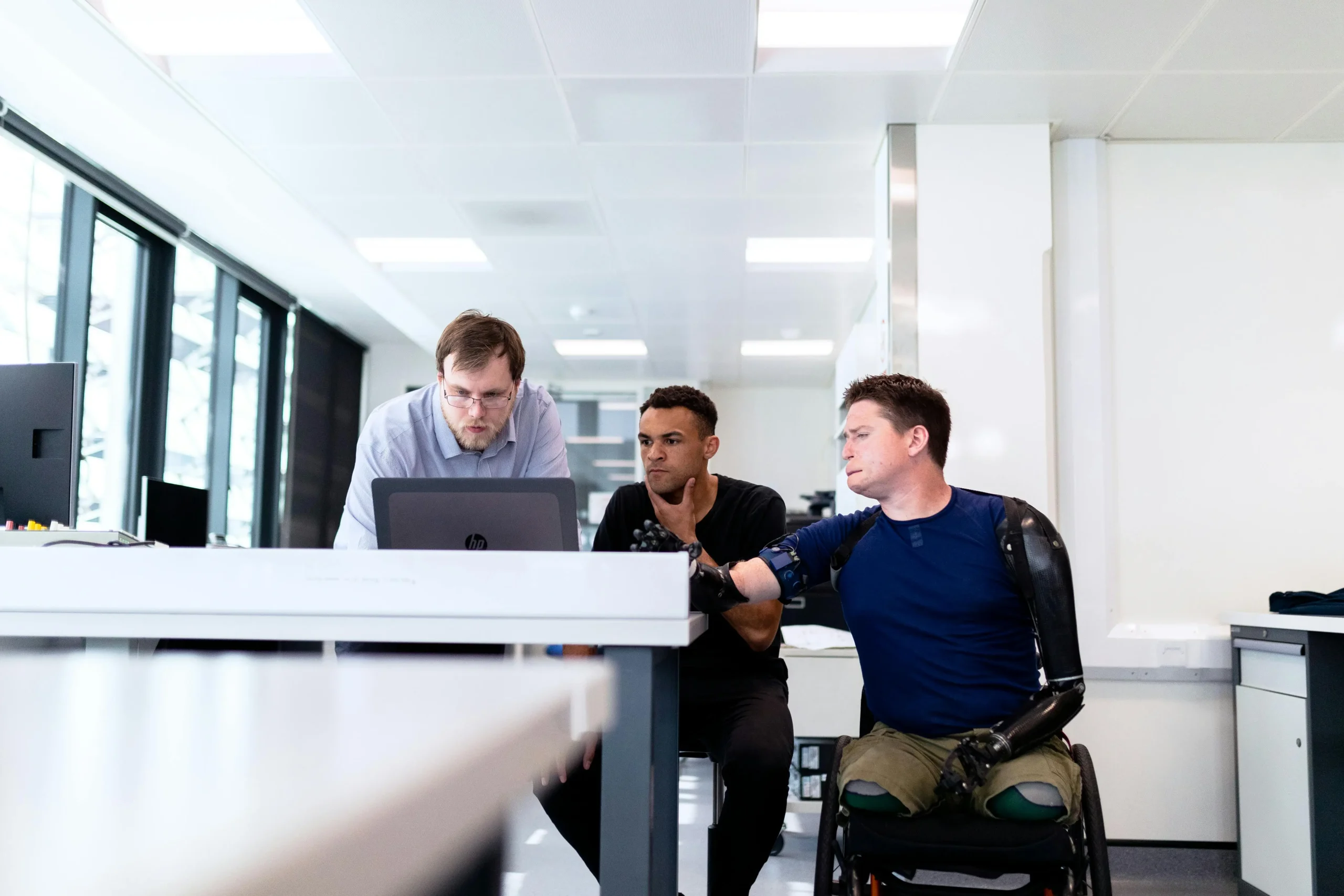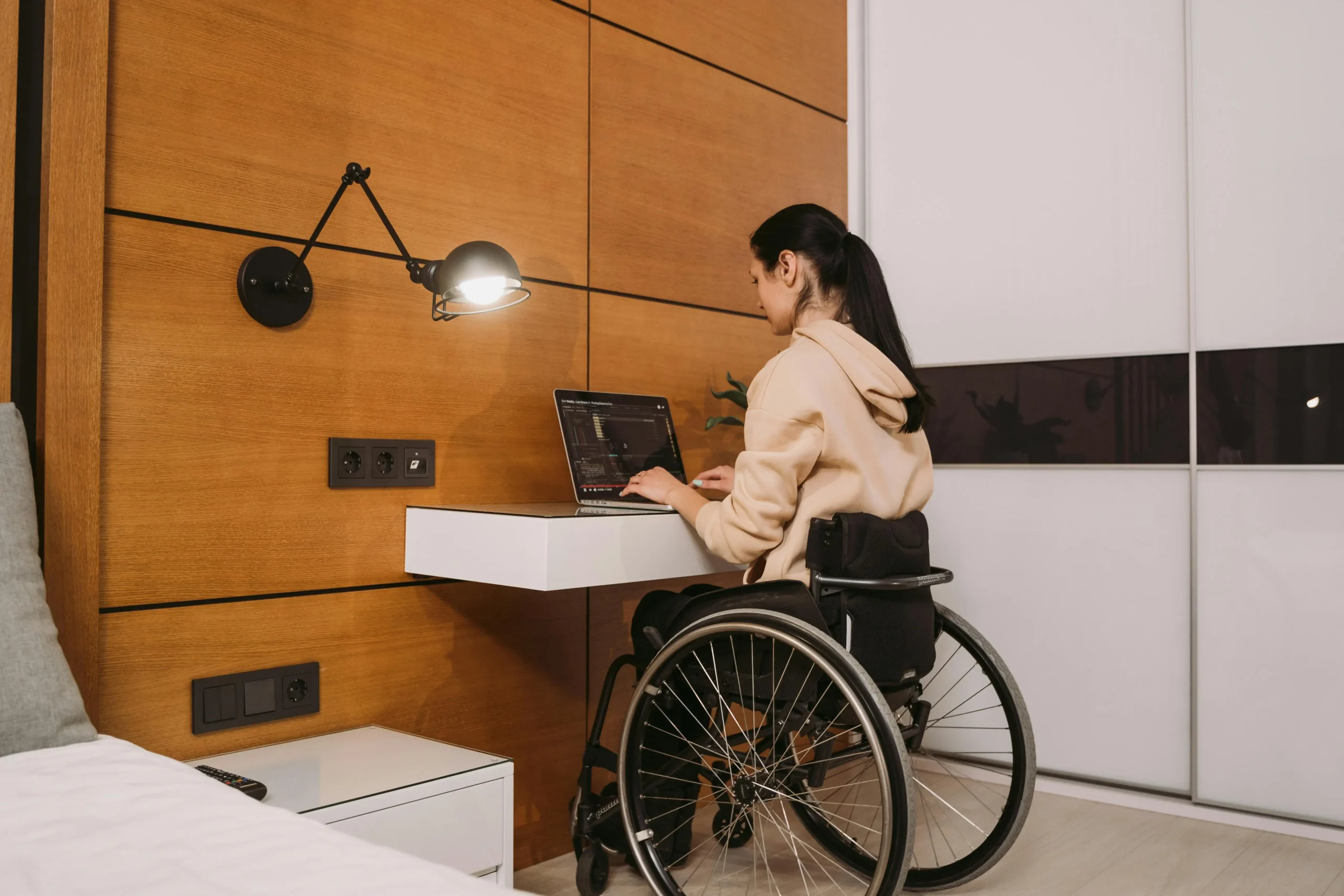Celebrate Disabilities! How Your Company Can Empower Employees with Disabilities

As a company, it’s important to celebrate and recognize the unique strengths of all your employees. This includes creating an environment that is welcoming and supportive for individuals with disabilities. Celebrating disability awareness in the workplace not only boosts morale, but it shows your commitment to diversity and inclusion amongst all members of your staff. It also brings additional benefits such as improved productivity, decreased turnover rates, increased creativity from employee engagement, and greater customer satisfaction. By taking proactive steps to honour employees with disabilities—such as implementing specialized accommodations or establishing specific support groups—you can help ensure they feel comfortable at work and empowered to do their best each day. Read on to learn how you can leverage people-first practices dedicated to making life better for everyone in your organization!
Recognize disabilities in the workplace and create a positive environment for those with disabilities
The workplace can be a challenging environment for those with disabilities. However, with the appropriate recognition and accommodations, individuals can be empowered to succeed in their roles. By creating a positive environment, not only can employees with disabilities excel, but everyone in the workplace can benefit from a more inclusive culture. This can be achieved by acknowledging the unique challenges faced by individuals with disabilities, such as accommodating mobility limitations or providing accessible technology. Through empathy, understanding, and active steps toward accessibility, we can create a workplace where everyone feels supported and appreciated for their contributions.
Offer flexible scheduling and accommodations to help employees with disabilities be successful
As an employer, fostering a workplace that accommodates employees with varying abilities is crucial to not only their success but the overall success of the company. When it comes to employees with disabilities, offering flexible scheduling and accommodations can make all the difference in their ability to excel in their roles. Whether it’s adjusting work hours to accommodate doctor’s appointments or providing specialized equipment for those with physical limitations, these accommodations show employees that they are valued and supported in their work. By taking the necessary steps to prioritize the well-being of all employees, companies can create a more inclusive and productive workplace for everyone.
Incorporate disability-related training into onboarding and education programs
Creating a welcoming and inclusive environment in the workplace is crucial for every employee’s success, including those with disabilities. Incorporating disability-related training into onboarding and education programs is a step towards ensuring that everyone on the team is equipped with the knowledge and skills needed to work effectively with colleagues with disabilities. By integrating such training, new hires will be able to confidently and respectfully communicate with their colleagues, provide the appropriate support, and collaborate to complete tasks efficiently. Such an approach promotes a culture of inclusivity, where everyone feels valued and supported, leading to enhanced productivity and better job satisfaction for all.

Encourage open communication among staff members so employees can share their experiences of living with disabilities
Creating an open environment in the workplace where staff members can share their experiences of living with disabilities is important for fostering inclusivity and understanding. As organizations strive to become more diverse and accommodating, it’s important to provide a platform where employees can express their challenges and triumphs. Encouraging honest and open communication among colleagues with disabilities helps to break down any barriers and misconceptions that may exist, as it promotes empathy and a better understanding of the unique circumstances that people face. By fostering this level of communication, employers can create a more welcoming and supportive work environment for everyone.
Leverage technology to assist in making the workplace more accessible
In today’s fast-paced world, technology plays a crucial role in improving our daily lives. This includes the workplace as well. By leveraging technology, we can make our workplace more accessible and inclusive for everyone. From hearing aids to voice recognition software, there are various assistive technologies available that can assist people with disabilities in performing their job duties effectively. For example, accessible design approaches such as high-contrast displays or adjustable screen angles can help users with vision impairment, while audio descriptions can aid those with hearing loss. Moreover, technology can also facilitate remote work, giving flexible work options to individuals with disabled conditions. By embracing technology as a tool for diversity and inclusion, we can empower people with disabilities and foster a positive work environment for all.
Work with local organizations that provide support and resources to individuals with disabilities
In a society that values diversity and inclusion, it is crucial to recognize the needs of individuals with disabilities. Local organizations that specialize in providing support and resources to these individuals play an essential role in creating a more accessible and supportive community. Whether it is through providing assistive technology, employment opportunities, or accessible programming, these organizations are at the forefront of promoting inclusion and empowering individuals with disabilities to thrive. By working alongside and supporting these organizations, we can help bridge the gap and ensure that individuals with disabilities have access to the resources they need to succeed and reach their full potential.
In the end, creating an accessible and inclusive workplace is not only a moral obligation but also provides many advantages to employers. Employers who are willing to invest in accessibility will be rewarded with improved performance from their employees with disabilities, lower costs associated with turnover and disability allowance requests, consistent compliance expectations related to laws and regulations, and a greater sense of inclusion and belonging within the organization. It’s up to businesses to ensure that employees with different kinds of disabilities are included as a part of their workplace culture—this can take the form of flexible accommodations, creating a more welcoming environment for those with physical or mental disabilities, training staff on how to work better with colleagues living with disabilities, incorporating technology that helps such individuals work better in different situations, constructing connections with local organizations offering support services for these individuals – or any combination thereof. Ultimately, it’s only when organizations prioritize disability inclusion that we will move closer to workplace environments where people come together as equals.













